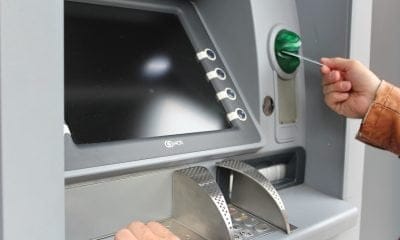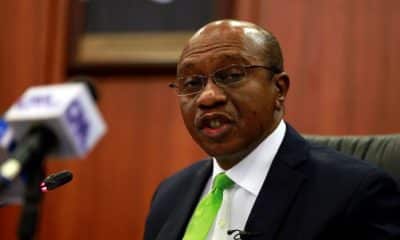Business
Nigeria’s Export Value Projected To Soar After Naira Float

A new Central Bank of Nigeria (CBN) directive could see the nation’s export value increase to at least N41.99tn annually.
This move comes after the CBN ordered Deposit Money Banks to eliminate the rate cap on the naira at the official Investors and Exporters’ Window of the foreign exchange market.
The goal is to reduce the disparity between the official and parallel market rates of the naira.
The CBN announced, “The Central Bank of Nigeria wishes to inform all authorised dealers and the general public of the following immediate changes to operations in the Nigerian Foreign Exchange Market: Abolishment of segmentation. All segments are now collapsed into the Investors and Exporters window.”
Following this change, the naira fell from 471/dollar to 664.04/dollar, ending the week at N663.04/dollar.
This devaluation means exporters, including the Federal Government, stand to earn more revenue (in naira terms) from their dollar-based export earnings.
Last year’s total export was $63.34bn. Converted at December 30, 2022’s central dollar rate of N448.55/dollar, this would have been equivalent to N28.41tn.
However, using the recent exchange rate of N663.04/dollar, the same export value would amount to N41.99tn.
Should Nigeria maintain its 2022 export quantity and ramp up oil production, as planned by the government, the country’s export value could grow even more.
Despite issues like pipeline vandalism and oil theft leading to a slump in oil production, Nigeria’s largest exported commodity, oil and mineral fuel, yielded N25.78tn ($57.47bn) in 2022.
The Nigerian National Petroleum Company Limited’s Group Chief Executive Officer, Mele Kyari, stated in January that the country could reach a crude oil production level of 2.2mb/d in 2023.
This policy was advocated for by President Bola Tinubu in his May 29 inauguration speech, where he urged the CBN to work towards a unified exchange rate.
“The central bank must work towards a unified exchange rate. They should direct the fund from arbitrage to meaningful investment,” he said.
This shift is anticipated to increase government revenue, which has been on a downward trend for some time.
JP Morgan endorsed the policy, noting, “a weaker exchange rate means the government would receive higher naira revenues from oil and gas exports.”
Olusola Obadimu, Director-General of the Nigerian Association of Chambers of Commerce, Industry, Mines and Agriculture, also sees the positive side, suggesting that exporters will now obtain the real value of their exported commodities due to the unification of exchange rates.












